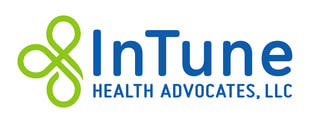 How many of us really understand health insurance? Have you read your health insurance policy? (Sounds fun, right?) I’m highlighting a few key terms below; you can also look at this helpful glossary to better understand your health plan.
And then there are allowed amounts, balance billing, and so much more. Read the policy benefits booklet carefully. Be sure you understand what services are covered, when you need to obtain prior authorization or get a referral before seeing a specialist, and that just because your physician is in-network, it doesn’t mean that the hospital he or she may treat you at is also in-network. Bottom line: the more you know in advance about your health insurance plan, the better prepared you can be to obtain the care you need as well as manage your financial risk. Comments are closed.
|
AuthorWrite something about yourself. No need to be fancy, just an overview. Archives
February 2024
Categories |

 RSS Feed
RSS Feed



